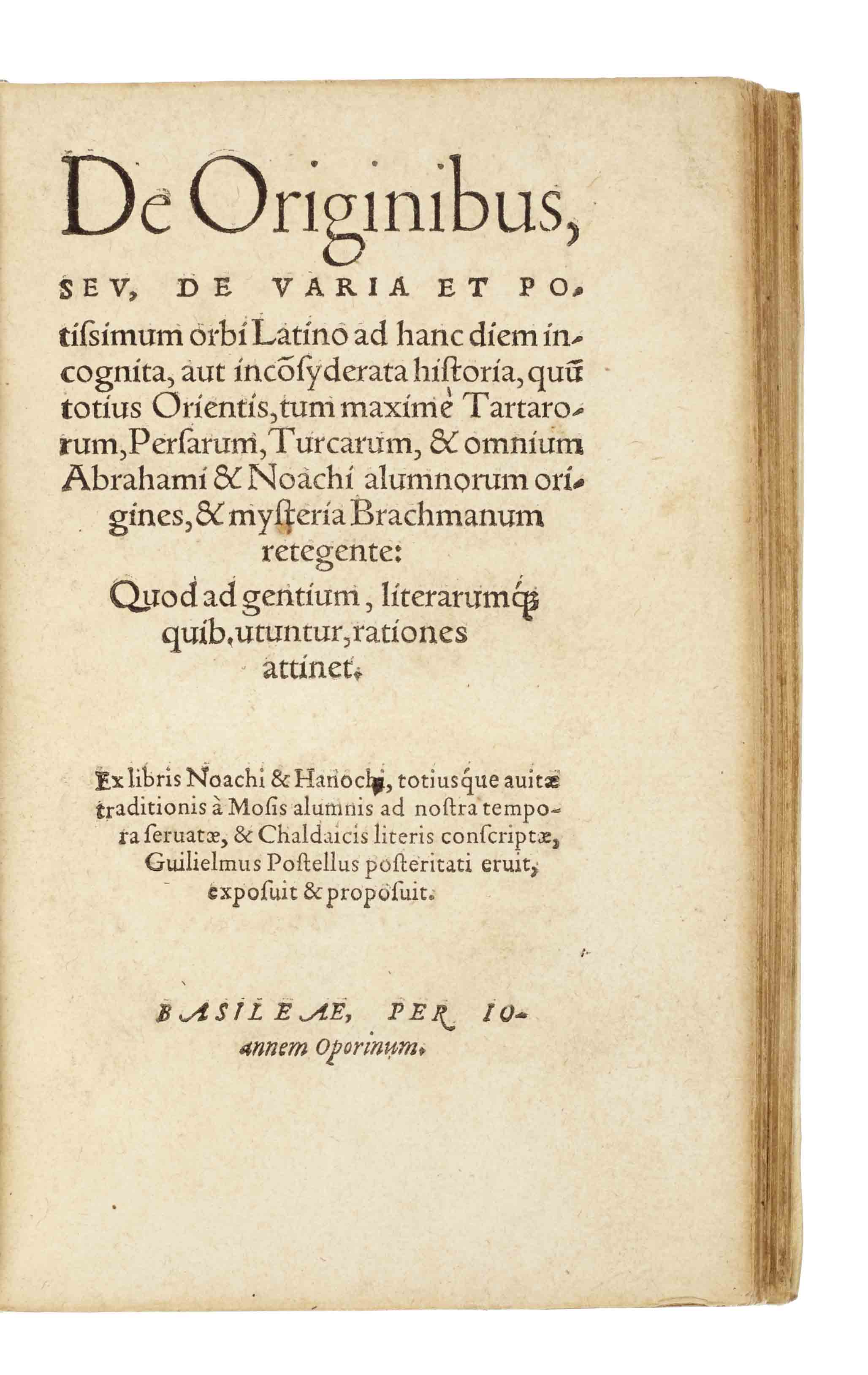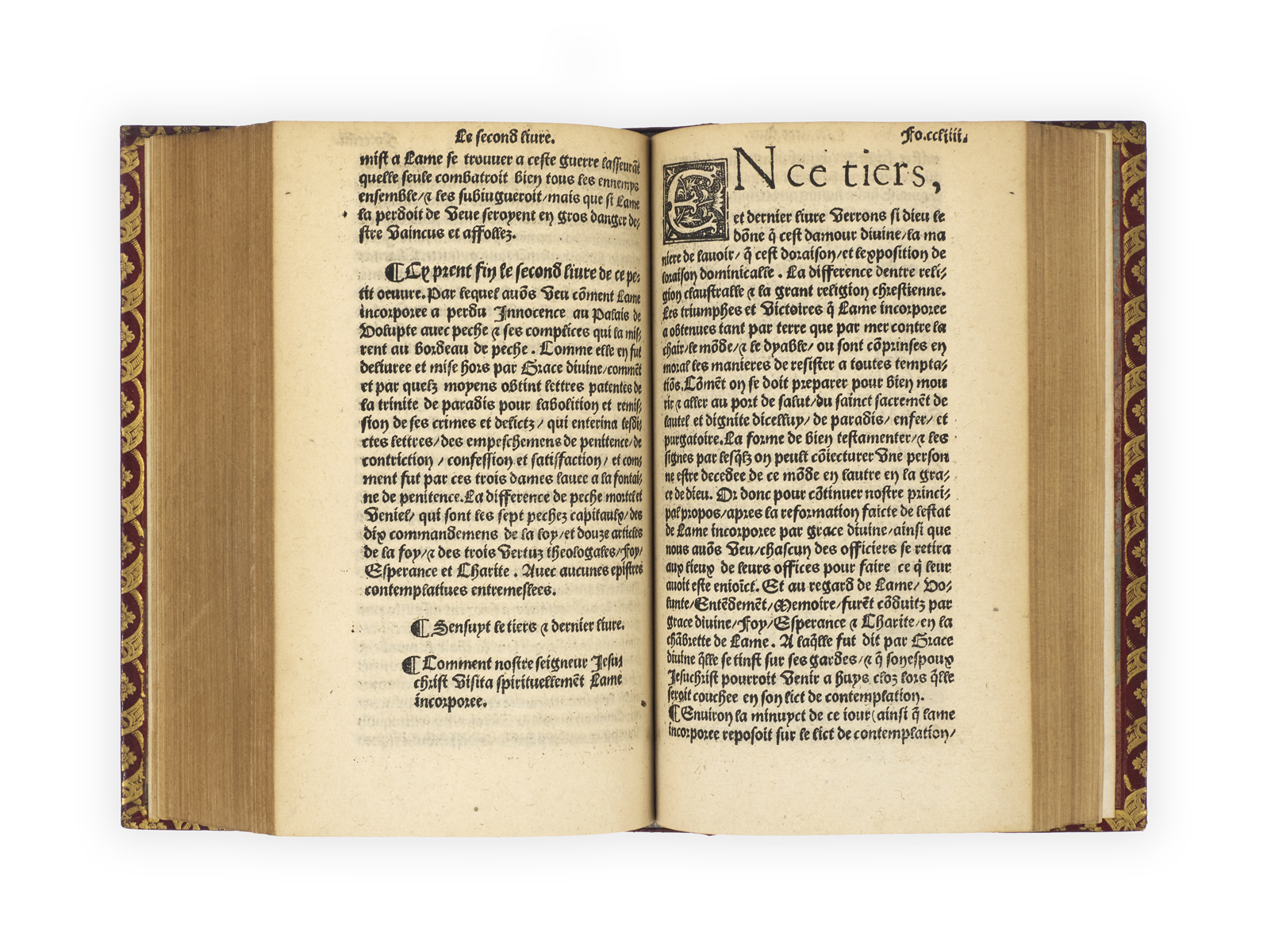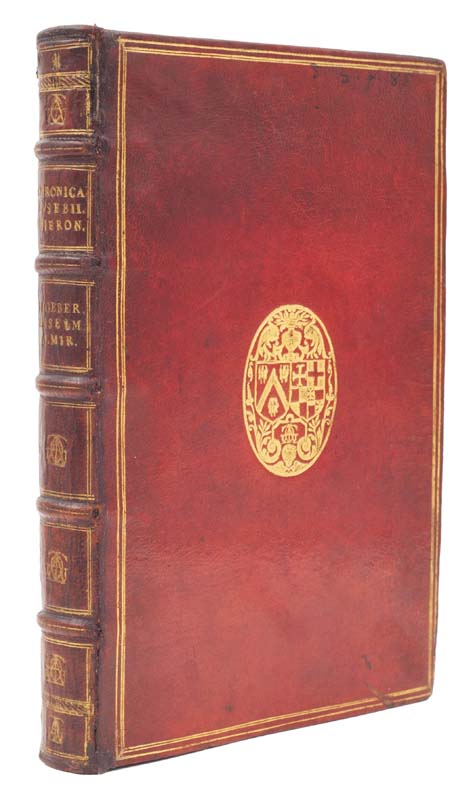
POSTEL, Guillaume.
De originibus, seu, de varia et potissimum orbi Latino ad hanc diem incognita, aut inconsyderata historia, quorum totius Orientis, tum maximè Tartarorum, Persarum, Turcarum, & omnium Abrahami & Noachi alumnorum origines, & mysteria Brachmanum retegente.
Basel, Johannes Oporinus, [1553].
8vo, pp. 135, woodcut initials in the text; a fine copy in modern vellum; a few contemporary marginal notes and underlinings, mainly at the beginning.

Added to your basket:
De originibus, seu, de varia et potissimum orbi Latino ad hanc diem incognita, aut inconsyderata historia, quorum totius Orientis, tum maximè Tartarorum, Persarum, Turcarum, & omnium Abrahami & Noachi alumnorum origines, & mysteria Brachmanum retegente.
First edition of Postel’s investigations into the original language as a means to regain the primordial unity of mankind.
During the immensely productive years 1552 and 1553, Postel constantly emphasized the need for action in order to unify the world. ‘He was explicit about the practicality of his aims. Late in his career he wrote to Masius that his life’s work had been a long effort to persuade Christendom to act. If it would only exert itself, how easily the world would pass from its terrible disorders into the eternal peace proclaimed by Christ! His sense of active purpose permeated even his most apparently academic works, such as his treatise De originibus of 1553. In this book he offered a profoundly Augustinian statement of purpose: “I have aimed to treat of both the original relationships of things and the methods by which we can reconcile them again in the completest peace; and I have tried to promote that end for which the world was created, universal peace”’ (Bouwsma, Concordia Mundi, p. 214).
‘Postel believed that language, that is, to know the names of things, was god’s greatest gift to man … In the De originibus seu de varia et potissimum orbi Latino ad hanc diem incognita aut inconsyderata historia … Postel argues according to logic about God’s gift of speech to mankind. Man is different from other animals because he can reason and speak. Therefore, the Greeks called man “animal logicum” because ((((( indicates speech or conversation no less than reason … All men take their origin from Adam, who as first parent was taught by God about the names of everything in the universe: “Since there was no man, before the first man, who could speak an exterior voice, he necessarily conceived all the names of things by an interior voice”. When Adam was alone in Paradise, God and Adam communicated by the emanation of Idea which was called an inner voice … Adam divinely received the words from Wisdom or from the agent intellect of which we are all members; however, in order to teach posterity, it was necessary to bring forth all things with an exterior voice …
‘It is clear that Postel’s desire to know languages was fuelled by his concept of the divine origin of language … God gave to Adam the ability to speak and to write in order to teach mankind God’s Law. God’s Law was transmitted through the first parent, Adam, through Enoch, through Noah, and through Moses … The gift of language and God’s Law cannot be separated in Postel’s thought’ (Kuntz, pp. 131-132).
Adams P2022; VD16 P4482; not in Caillet. See Kuntz, ‘ The original language as paradigm for the restitutio omnium’ in The Language of Adam; Die Sprache Adams (Wolfenbütteler Forschungen 84).

